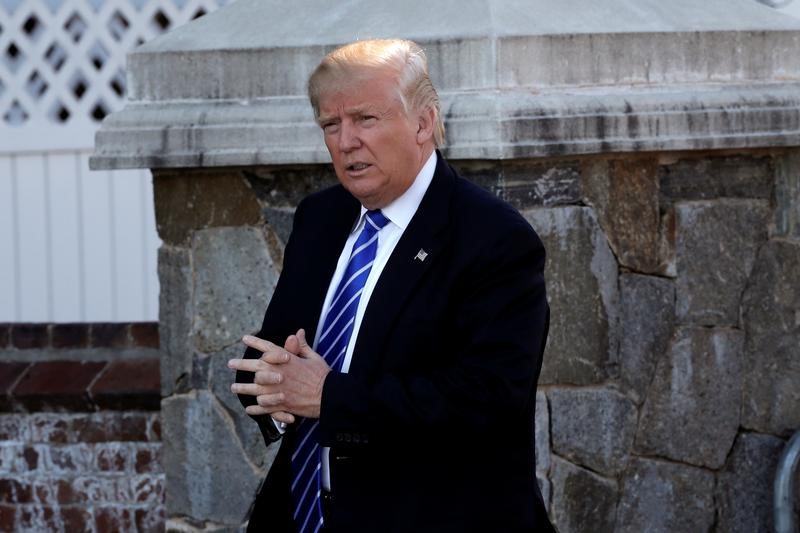By Warren Strobel
WASHINGTON (Reuters) - Stephen Feinberg, the chief executive of private equity firm Cerberus Capital Management (CBS.UL) who backed U.S. President Donald Trump's election campaign, is being considered to lead a review of the vast U.S. intelligence operation and whether it can be restructured, current and former officials told Reuters.
While cautioning that the appointment was not final, the U.S. officials said Feinberg, if named to the role, would look for ways to streamline 17 separate agencies, a roughly $70 billion annual budget and tens of thousands of employees.
Trump's advisers have expressed particular interest in reforming the role of the Office of the Director of National Intelligence, which was created after the Sept. 11, 2001, attacks to coordinate the work of U.S. spy agencies.
The White House declined comment on Feinberg's potential role. Cerberus declined to comment.
Cerberus said last week that Feinberg was in talks to join Trump's administration in a senior role, without specifying what that role could be. The firm told its investors that it had a succession plan in place that would result in minimal changes to management and operations.
Potential conflicts of interest would also have to be resolved before Feinberg could join the administration. In a letter to investors last week, Cerberus said clearing that hurdle would require Feinberg to provide "voluminous information" and disclosures to the Office of Government Ethics.
Feinberg, 56, who donated to Trump's 2016 election campaign and served as an economic adviser to him, has no prior experience in government.
A Princeton graduate, Feinberg was one of the co-founders of Cerberus in 1992. He previously worked at bond trader Drexel Burnham Lambert. Forbes Magazine currently pegs 56-year-old Feinberg's net worth at $1.25 billion.
Feinberg rarely gives interviews and has shunned public appearances.
Cerberus has investments in a wide range of brands and industries from guns and waste management to cosmetics and amusement parks.
The firm became well known for a $7.4-billion deal it struck in 2007, along with co-investors, to buy an 80 percent stake in car maker Chrysler and its financing arm Chrysler Financial.
Chrysler was pushed to the brink of liquidation in 2009 before a bailout that was the subject of intense debate within the administration of former U.S. President Barack Obama. Cerberus lost control of the automaker during its restructuring.
In 2010, Cerberus bought DynCorp, a defense contractor, for $1 billion. The company has had contracts to train Iraqi police and support U.S. troops in Afghanistan. It has business relationships with the U.S. military and other government agencies.
Two other Wall Street figures who had been expected to work for Trump have had to bow out because of conflicts with their business activities. They are Anthony Scaramucci, who had been tapped as White House liaison to businesses, and Vincent Viola, Trump's nominee for Army secretary.
Several former U.S. intelligence officials acknowledged the potential for a review of spy agencies' role, structure and inefficiencies. But they expressed concern that the study would be run out of the White House, rather than under the aegis of the Director of National Intelligence, which was established with that oversight mandate.
Trump has nominated former Senator Dan Coats to be director of national intelligence and said the post would be part of the Cabinet. Coats is awaiting Senate confirmation.
Trump has had a fraught relationship with U.S. intelligence agencies. For weeks, he rejected their conclusion that Russian President Vladimir Putin ordered cyber operatives to interfere in the election to help Trump's chances against Democratic candidate Hillary Clinton, before appearing to accept it.
